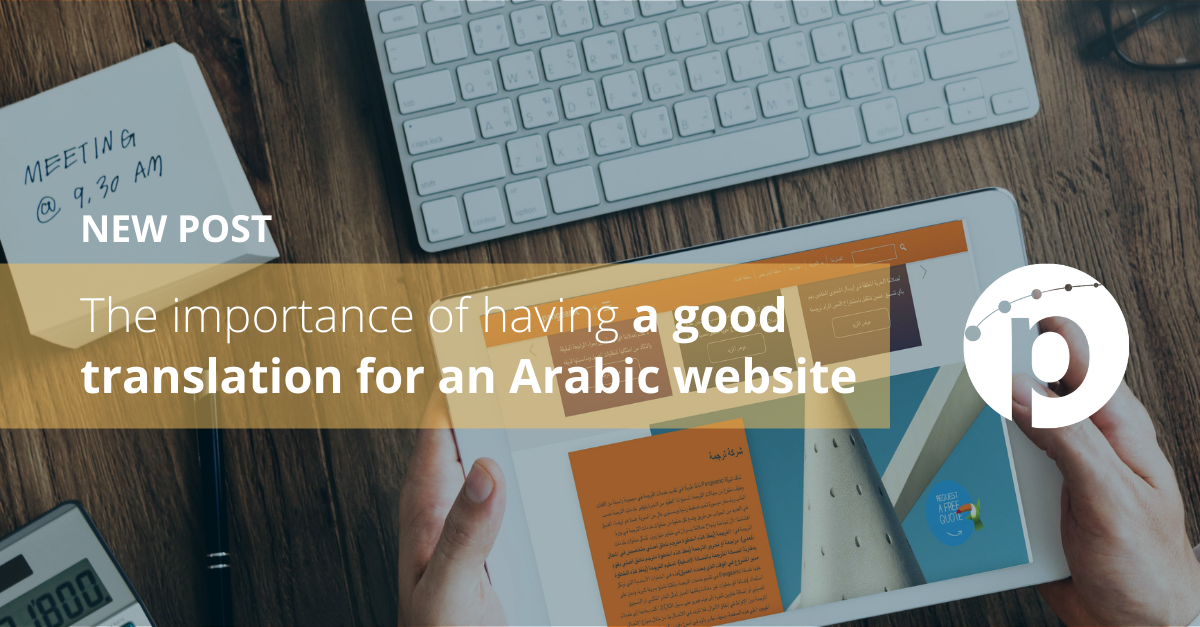The Arabic language is a vast language spoken and accepted world over. It is a growing language in any serious world marketing plan for many reasons: it is spoken by an estimated 290 million native speakers in the Middle East, North Africa and East Africa. With online sales and websites becoming a hub for information, the importance of having a good translation for an Arabic website is pivotal for any world-class business that uses languages for financial translations, medical translations, technical translations, etc.
Arabic is spoken over 27 countries and it has had considerable influence on other languages and cultures across the Mediterranean. Many words in Spanish and Portuguese have an Arabic origin (it is considered that around 20% of Spanish and Portuguese vocabulary). Maltese, Catalan and the Sicilian dialect have Arabic influences, too, as well as Bosnian. Arabic has also influenced languages in the Middle East like Persian and Kurdish, Central Asia (Kazakh) and South East Asia (Malay, Indonesian, Tagalog in the Philippines) and in Africa (Tigrinya, Somali and Swahili in Eastern Africa, Hausa in Western Africa. In the Indian subcontinent, Arabic has influenced Bengali, Hindi, Sindhi and Punjabi.
Do you need our English Translation Services? Contact us!
Arabic spreads over almost 5000 miles (8000 km) from Nuakchott in Mauritania to Muskat in Oman. This is practically the same distance travelling from Alaska to Puerto Rico or from Lisbon in Portugal to Omsk in Russia… and everybody speaks in Arabic or an Arabic dialect. However, as with any language that is spread over thousands of miles, Arabic is open to many varieties which sometimes are not mutually easily intelligible both written and orally.
Only Classical Arabic is common to all Arabic speakers. If we consider all Arabic dialects a single language, we can count as many as 420 million speakers (between native and non-native but using Arabic proficiently) in the Arab world. This would make it one of the six most-spoken languages in the world. Globally, it is the third language with official status in most countries, after English and French.
Arabic is also one of the official languages of the United Nations. If we consider the separate Arabic dialects as different languages, the largest spoken variety would then be Egyptian Arabic, which often taken as the standard variety for translation because of its 89 million native speakers. The several Arabic varieties as a whole constitute a sociolinguistic language, which means that on purely linguistic grounds each of them would likely be considered to constitute more than one language as it happens with other languages.
However, Arabic dialects are commonly grouped together as a single language because of political/religious reasons. Nobody has established how many different languages Arabic would be portioned into if we were to consider it multiple languages because the spoken varieties form a dialect chain dialect chain with no clear boundaries. Arabic is also the common liturgical language of religion for 1.6bn Muslims.
Why translate into Arabic
Arabic is the world’s fastest developing language on social media sites with the number of active Twitter users in the Arab nations rising from 1.9 million to 4.6 million in 2014, and there are more than 6 million LinkedIn users located in the Arab world. In July 2015 only, Arab Twitter users spawned over 627 million tweets. While global marketers and businesses should take note of these vital facts, the worth of Arabic content on the web goes far beyond just its commercial advantages but also fosters relationships.
Translating into Arabic is as important as a language of politics and for its impact on other languages. And since you own a website online representing your business or company, it would be necessary to reach out more to global markets with a specialist translation company and meet with more prospects and consumers of your goods and services
- Those of which would be excited to have your services delivered to them in a second language, Arabic! It is highly required and of high necessity for your website(s) to be translated into Arabic and the following obvious points will reveal why!
- As a business owner with a website
- When foreign prospects or clients can’t read your website info, then succeeding in those grounds will be hard to come by.
- Your would-be clients are more at home and would trust better to purchase or transact with your business if the content on your website is delivered in their native languages.
- English language alone is not sufficient if you desire to break barriers, reach out to the entire globe and make more leads, sales and profits. Hence Arabic translation for your website is highly suggested if you want to aim the Arabic marketplace and launch your business one step ahead whilst being global.
- Arabic translation is essential for your industry if you are planning to reach more clients and explore additional prospects. Translating your website to Arabic, will help you to charm new Arabic customers and readers, and deliver better engagement for them.
SEO services
With regards to SEO, search engine optimization - Arabic translation is a noteworthy feature of SEO stratagems if you want to channel your energies on pulling more traffic to your website from the Arabic world. Crafting intelligent website related Arabic keywords will permit the site to become fully indexed and noticeable in search results; and this will surely help your page ranking and boost earnings/returns.
These are just basic reasons and in general with one major goal; it is to help your business grow - breaking limits and gaining more exposure with huge returns on investments as your profit.
Facts about the Arabic language
- UN Resolution, 1973 : Inclusion of Arabic among the official and the working languages of the General Assembly of Unesco and its main Committees
- Executive Board of Unesco, 2012, proposal for a World Arabic Language Day



